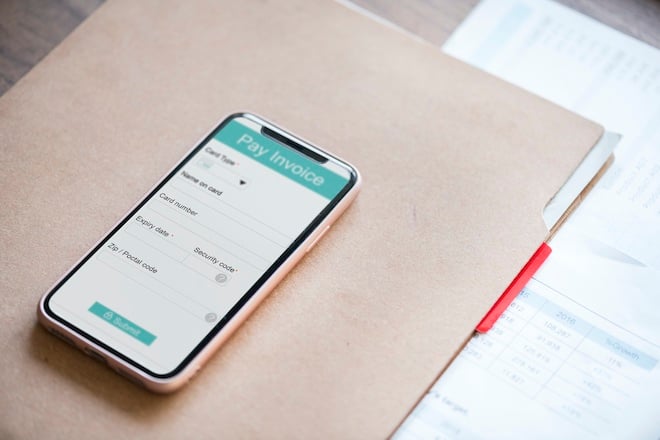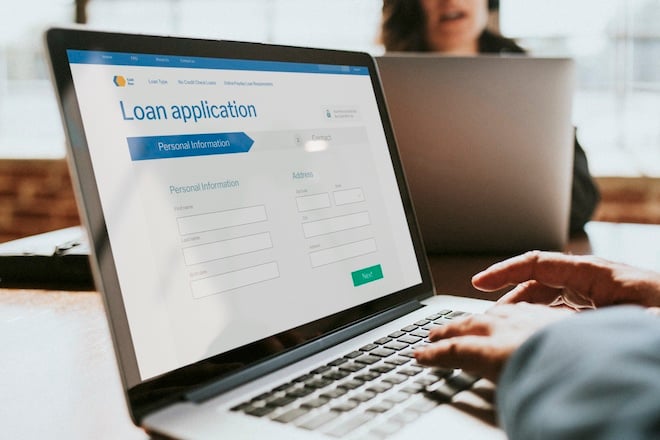
Please note: This post contains affiliate links and we may receive a commission if you make a purchase using these links.
According to the U.S. Small Business Administration, 30.7 million small businesses exist across the nation. But the economic impact of the current scenario has left entrepreneurs scrambling to make the best decisions for safeguarding the longevity of their business ventures. Perhaps more than ever, opening a business bank account remains a valuable step in establishing your company as a legitimate legal entity.
Benefits of Opening a Business Bank Account
Some of the benefits of having a business bank account include:
- Streamlining the bill pay process through online payment options
- Separating business and personal finances
- Keeping track of business expenses
- Ensuring your LLC saves money at tax time if you do have an LLC
But most essential of all, opening a business bank account makes it easier for you to get paid by your customers. Given the circumstances, you need to be extra careful to avoid any potential risks that might expose your business. Here are some common mistakes you should look to avoid.

Common Business Bank Account Mistakes to Avoid
1. Trying to Open a Business Bank Account Without an LLC or Business Entity
You cannot open a business bank account until you have gone through the process of forming an LLC (or any other corporate entity) and getting an Employer ID Number (EIN) for tax purposes. A legal business entity ensures you keep your personal identity as an individual completely separate. And now is not the time to take any shortcuts.
You can operate as a sole proprietor with a personal bank account, but in doing so, you miss out on the benefits LLCs enjoy. Of course, there is the liability protection that lends LLCs their name and keeps your personal assets protected. But, by intermingling your personal and business funds, you also forgo the tax advantages of deductible business expenses. During an economic slowdown, you need as many safeguards as possible in the event your business needs to shut down or reduce staff.
Uncertain times require more cautious action, and the last thing you want is for any potential business problems to seep into your personal accounts as well. Moreover, you want to reassure your customers that you're prepared for whatever the future may hold. A business bank account is a simple way to show you are still doing business the right way.
2. Failing to Adjust Your Approach According to Economic Conditions
Anytime you’re looking to open up a business bank account, you need to take into account the economic conditions. Your business may have already taken a financial hit. And even if it hasn't, you should brace yourself for potential impact just in case. So any banking decisions you make should consider which services you need in the immediate and the long term.
When choosing the bank for your new business account, keep in mind what plans you have in the pipeline and how the future economic environment could derail them. While you can't always predict an economic downturn like we're experiencing now, your choice of bank can impact your bottom in a variety of ways, including your ability to receive loans and funding you might need.
3. Not Vetting Through the Required Documents
Just like you need to show identification when opening a new personal bank account, banks usually require one or more documents to help identify your business as a new customer and open the new bank account in your business name. Here are a few of the key documents you might need to provide when opening a business bank account and it's crucial that these are vetted beforehand:
- Employer Identification Number (EIN)
- Business formation documents (such as Articles of Incorporation)
- Ownership agreements (especially if you have business partners)
- Business license (if applicable depending on your state/city/industry)
4. Getting a Bank Account with the Wrong Features and Services

With so many bank account packages out there, you need to select the bank or credit union with the account features and services that suit your specific business needs. For example, a small business owner who is a single member of an LLC might want to have a business checking account, a business savings account (to save money for taxes) and a business credit card.
Many banks want to win your business, and they might present special offers — no fees, lower rates, enhanced terms — if you agree to open more accounts or get more banking products with them. But make sure you don’t sign up for too little or too much. For example, here are a few scenarios to avoid as you open your business bank account:
- Don’t get an online-only bank account if you need to deposit cash.
- Don’t sign up for a business line of credit if you’re still too small to need it.
- Don’t sign up for an expensive merchant services account (to process credit card payments). Instead, opt for cheaper payment processing options like Square or PayPal.
Make sure your business banking services are the right size for your business. You can always add more options later as you grow.
5. Choosing a Bank for the Short-Term Only
Choosing a bank for your business account should be approached as a long-term partnership. Don’t assume you will switch banks, but be ready to stay with your bank for the long haul. The better you can communicate with your bank and the longer you stay with them, the more discounts, value-added services and special features they can offer you.
Business bankers will ideally want to work with you for the long term, and they’ll be happy to consult with you along the way about how they can help your business with the right selection of loans or banking services. There are a lot of complex business services that banks can provide, which might not be the right fit for you today, but will become helpful as your business grows.
6. Not Anticipating Future Business Funding Needs

The economic slowdown doesn’t make it an ideal time for businesses of any kind to apply for additional business loans. But it’s always a good idea to take into account the loan programs offered by the different banks where you are considering opening up a new account. Many banks will offer promotional accounts for prospective customers with lower minimum balances or incentives such as bonus dollars just for opening up a business account.
According to NFIB, 84 percent of small business owners who were successful in receiving assistance from the new PPP loan program already had a checking or savings account with the bank they applied through. A little under 50 percent had an active loan with the bank, 24 percent had a business credit card and only 1 percent of successful applicants had no previous history with the bank. Establishing a relationship with a bank sooner than later may help you down the line if loans or monetary assistance is ever needed.
You have many offers to consider as you move forward with opening a business bank account. But be sure to do your own research before committing to any one option. The current state of the world dictates extra caution in every aspect of life, and your business is no different. So proceed with your business plans. Just take the necessary steps to ensure your profitability and long-term strategy don’t suffer because of a miscalculation.
